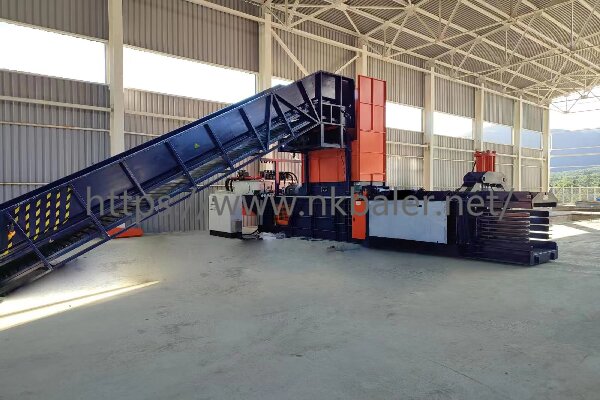1000kg
plastic films baling press machine is designed to compress loose plastic waste (such as LDPE films, packaging materials, and agricultural mulch) into dense, manageable bales for recycling or disposal. Here’s a step-by-step breakdown of its operation:
Feeding & Loading:Loose plastic films are manually or conveyor-fed into the machine’s compression chamber.Some models include pre-cutting or shredding mechanisms to improve compaction efficiency.Compression:Powerful
hydraulic system (typically 20-40 tons of force) presses the plastic downward, reducing volume by up to 90%.Sensors monitor bale density to ensure uniform weight (e.g., 1000kg per bale).
Tying & Ejection:Once compressed, the bale is tightly bound with steel wires or plastic straps to maintain shape.The finished bale is ejected automatically or manually for storage/transport.Automation & Safety Features:Advanced models use
PLC control systems for automated cycling and pressure adjustment.Safety locks and emergency stops protect operators during high-pressure compression.
Key Advantages:Space-saving: Converts bulky plastic waste into compact bales.Cost-efficient: Lowers transportation and storage expenses.
Recycling-ready: Prepares plastic for easy reprocessing.This machine is ideal for recycling plants, supermarkets, and industrial facilities handling large plastic waste volumes.Nick mechanical hydraulic packaging machine is specially used in the recovery and packaging of loose materials such as waste paper, waste cardboard, carton factory, waste book, waste magazine, plastic film, straw and other loose materials.



